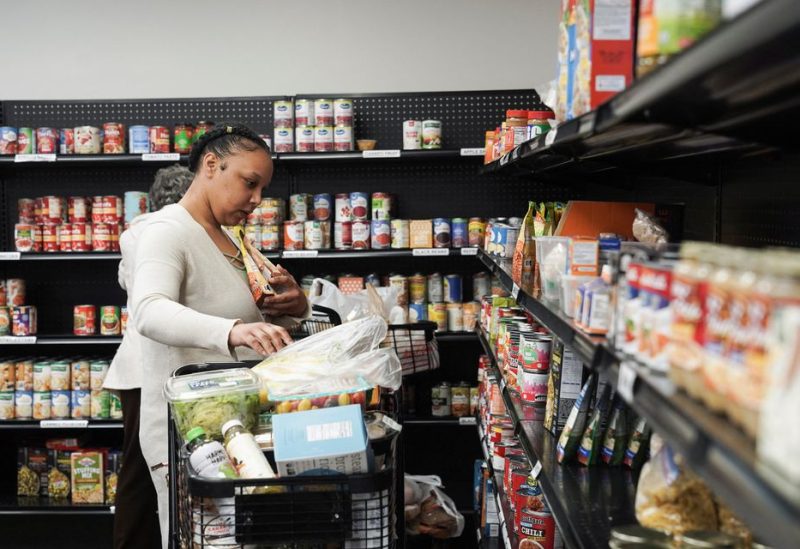
Sharawn White shops for food at The Community Assistance Center food pantry, in Atlanta, Georgia, U.S. April 12, 2023. REUTERS
As economists and investors scour data on inflation, jobs, housing, banking and other bellwether indicators to determine whether the United States is headed for a recession, a visit to the nation’s largest food-bank warehouse offers some ominous clues.
More than half of the shelves at the Atlanta Community Food Bank are bare, in part because of supply-chain issues, but mostly because demand for food assistance is as high as it was during the COVID-19 pandemic, the nonprofit’s executives said. They said two in five people seeking food assistance in the Atlanta region this year have not done so before.
“Nobody anticipated this,” said Debra Shoaf, chief financial officer of the private charity, which relies on corporate and individual donations, as well as government grants, to distribute food to the hungry in 29 Georgia counties. Shoaf, who also serves on the finance steering committee for the national charity Feeding America, says she’s hearing similar reports across the United States. “We’re back up to pandemic levels,” she said.
In some regions, demand is exceeding even the starkest days of the COVID pandemic. In central Ohio, the local food bank says the number of households seeking aid has increased by nearly half since last year.
More than 11.4 million households collected free groceries in early April, up 15% from a year ago, according to data from the Census Bureau.
“Food banks have been around for 50 years, but this is the first time we are seeing unprecedented high food demand combined with historically low unemployment rates,” said Vince Hall, chief government relations officer for Feeding America, which supports 60,000 food pantries.
The sustained demand comes as most government pandemic emergency aid ends – notably, temporary COVID-related increases to the Supplemental Nutrition Assistance Program (SNAP), formerly known as food stamps, a federal program that provides debit cards to directly purchase food at stores.
Inflation is a major factor, too: Grocery prices have increased 23% since March 2020, when the pandemic began, according to the U.S. Bureau of Labor Statistics.
Such post-COVID demand for free food is “not a good signal” for the economy “and perhaps an indicator of an impending recession,” said John Lowrey, a business professor at Northeastern University whose research focuses on food bank management and public health.